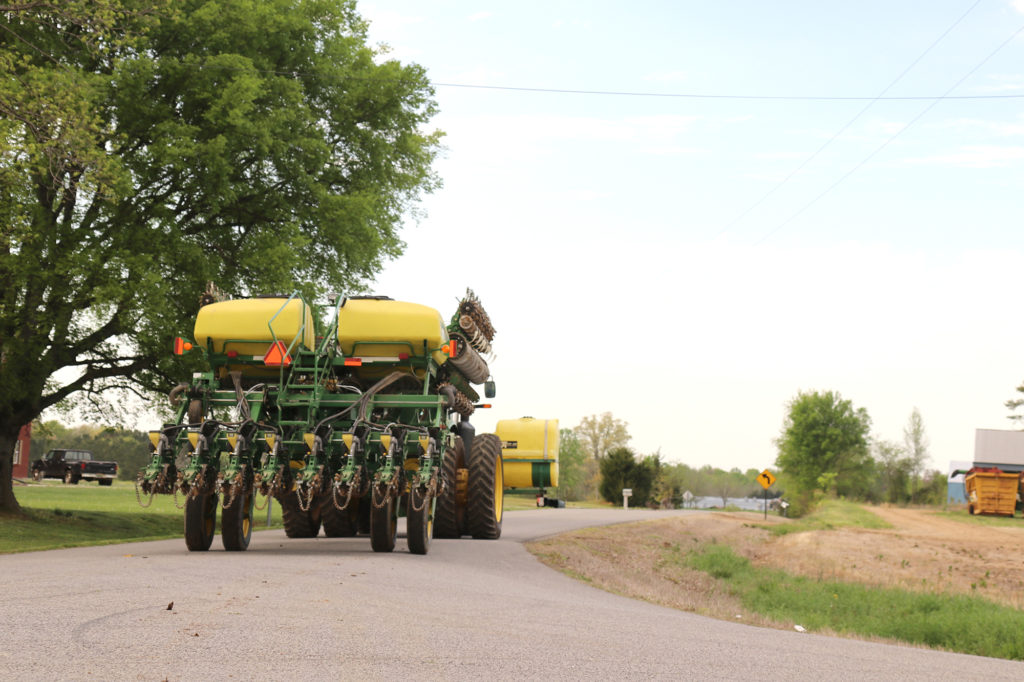Road Work: Operating Ag Equipment On Alabama Roadways

Farmers face various state and federal laws when operating farm vehicles on public roads. Safely navigating these laws is critical for farmers and their employees, who rely on these “implements of husbandry,” particularly during busy seasons like planting and harvesting.
Alabama law defines implements of husbandry as every vehicle designed and modified exclusively for agricultural, horticultural or livestock operations or for lifting or carrying another implement.
These implements of husbandry are exempt from many requirements other vehicles follow. For example, farmers are not always required to register the implement of husbandry if used on a road.
If the implement of husbandry is temporarily driven on a highway, it’s not subject to vehicle width, height, length or weight requirements, and the operator is not required to have a driver’s license. This exemption only applies to temporary movement. Driving a combine 200 miles to auction would likely not fall within the exemption. The operator is also not required to have liability insurance or a certificate of title.
Although exempt from many requirements, the way the agricultural vehicle is operated on a highway still matters; it can’t be used negligently or in a way that will injure others. For example, operating in the dark without proper lights isn’t acceptable since it could harm others or the driver.
Implements of husbandry with a maximum speed of 25 mph are required to have reflective, orange slow-moving vehicle triangles. Even if the vehicle can go faster, a farmer can still use a slow-moving vehicle triangle to identify it as a hazard.
Though defined in the code of Alabama, it’s not always clear what makes an implement of husbandry. When asked whether a Ford Bronco fit the parameters for implements of husbandry, the Alabama Supreme Court said it depends on the facts of each case and is a question a jury should answer. Factors include what farm activities the vehicle is used for, how often it’s used for non-farm activities, what is done with the vehicle when not used for farm activities and whether the vehicle was modified to help it achieve farm tasks.
When farmers operate agricultural equipment on the road, especially when that equipment could be used for something other than farming, they may still get pulled over and questioned — despite the exemption.
As always, farmers should use extreme caution when operating equipment, whether designed for road use or not. It’s important farmers and motorists stay alert to keep everyone safe.
